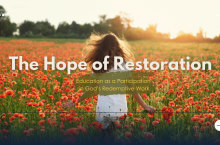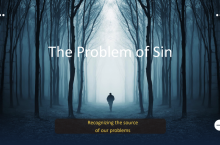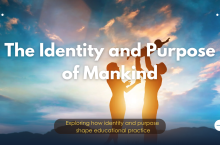Stronger Together
Strengthening Christian Schools
...
Equipping Christian Educators

Strengthening Critical Thinking
Christian schools are often intentional about teaching worldview and preparing students to engage with competing ideas. Yet the way we structure this engagement can either nurture deep critical thinking or unintentionally foster shallow habits of argument. Here are some practical tools to support critial thinking in the classroom.
Education as a Restoration of Hope
Today we turn to the good news: God’s plan of restoration through Christ. This is not only a personal hope but also a framework for how we think about education, leadership, and the shaping of society. How can we build meaningful outcomes into the process of teaching and learning which truly reflect the hope we have in Christ?
Recognizing the Problem of Sin
The foundational, yet often overlooked, reality is the way sin impacts both teaching and learning. As school leaders, we cannot view education merely as the transfer of knowledge or the development of skills. Education is always moral and spiritual, shaped either by truth that comes from God or by distortions introduced by sin.
Education as an Affirmation of Identity
Here we explore one of the most pressing issues facing Christian schools today: how we understand and communicate identity and purpose. Our role as school leaders is to help students discover who they are and why they are here, according to God’s Word, and to ensure that our school culture and curriculum reflect this foundational truth.
Rediscovering the Glory of God through Education
We live in a universe crafted by the Word of God. This foundation invites us to view education not as man’s attempt to impose meaning, but as an invitation to uncover the meaning already embedded in creation—Truth, Beauty, and Goodness.
Recently added articles
Strengthening Critical Thinking
Christian schools are often intentional about teaching worldview and preparing students to engage with competing ideas. Yet the way we structure this engagement can either nurture deep critical thinking or unintentionally foster shallow habits of argument. Here are some practical tools to support critial thinking in the classroom.
Education as a Restoration of Hope
Today we turn to the good news: God’s plan of restoration through Christ. This is not only a personal hope but also a framework for how we think about education, leadership, and the shaping of society. How can we build meaningful outcomes into the process of teaching and learning which truly reflect the hope we have in Christ?









